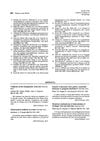33 citations,
January 2001 in “Critical care clinics” Dietary lipids affect inflammation and are crucial for normal cell function and immune health.
17 citations,
May 2014 in “Cell transplantation” Genetically modified stem cells from human hair follicles can lower blood sugar and increase survival in diabetic mice.
14 citations,
August 2004 in “Veterinary Dermatology” The horse had a rare type of hair loss caused by immune cells attacking hair follicles.
 4 citations,
November 2020 in “BMC Dermatology”
4 citations,
November 2020 in “BMC Dermatology” Researchers identified genes in scalp hair follicles that may affect hair traits and hair loss.
 January 2015 in “Springer eBooks”
January 2015 in “Springer eBooks” Hair health is influenced by genetics, aging, and environmental factors, with proper care needed to maintain it.
January 2014 in “International Journal of Clinical Medicine” Premature aging increases the risk of immune problems and autoimmune diseases.
 September 1983 in “Journal of The American Academy of Dermatology”
September 1983 in “Journal of The American Academy of Dermatology” Experts discussed hair care, genetic hair defects, hair loss treatments, nail surgery, lupus treatments, skin infections, and cosmetic allergies.
 21 citations,
November 2017 in “Livestock science”
21 citations,
November 2017 in “Livestock science” Nellore cattle have genetic variations linked to their adaptation to tropical environments.
 15 citations,
June 1964 in “Experimental Biology and Medicine”
15 citations,
June 1964 in “Experimental Biology and Medicine” Methotrexate can temporarily suppress certain immune responses without killing immune cells, potentially helping treat autoimmune diseases.
 April 2023 in “Journal of Investigative Dermatology”
April 2023 in “Journal of Investigative Dermatology” COVID-toes show a unique immune response over time, different from vaccine-related chilblains.
78 citations,
August 2014 in “Anais Brasileiros de Dermatologia” New vitiligo treatments focus on controlling immune damage and restoring skin color.
25 citations,
May 2011 in “Dermatologic therapy” New treatments for alopecia areata may target specific immune cells and pathways involved in hair loss.
 3 citations,
January 2013
3 citations,
January 2013 Hypothyroidism in dogs is usually caused by immune system issues or gland atrophy, affects middle-aged purebreds most, and is treatable with medication.
1 citations,
August 2019 in “Polskie Archiwum Medycyny Wewnętrznej” A patient with lupus experienced a condition where their immune cells became overactive.
 April 2023 in “Journal of Investigative Dermatology”
April 2023 in “Journal of Investigative Dermatology” Type 2 inflammation helps wound healing by switching immune cells to repair mode.
 April 2017 in “The journal of investigative dermatology/Journal of investigative dermatology”
April 2017 in “The journal of investigative dermatology/Journal of investigative dermatology” Stress in hair follicle cells increases certain immune-related proteins, which might contribute to hair loss conditions.
 November 1985 in “Journal of The American Academy of Dermatology”
November 1985 in “Journal of The American Academy of Dermatology” The document summarizes skin and immune system disease findings, especially related to AIDS, from the 1980s.
 27 citations,
May 2018 in “Journal of Dermatological Science”
27 citations,
May 2018 in “Journal of Dermatological Science” M2 macrophages, a type of immune cell, help in new hair growth on scars by producing growth factors.
 1 citations,
April 2023 in “International Journal of Molecular Sciences”
1 citations,
April 2023 in “International Journal of Molecular Sciences” Botryococcus terribilis Ethanol Extract may reduce inflammation by changing gene expression in cells.
 July 2023 in “The Egyptian Journal of Hospital Medicine ”
July 2023 in “The Egyptian Journal of Hospital Medicine ” Alopecia areata is a hair loss condition caused by immune factors and can be treated with JAK inhibitors.
April 2023 in “Journal of Investigative Dermatology” Chronic graft-versus-host disease in the skin shows strong Th1 immune response and unique barrier issues.

Alopecia Areata is treated with drugs and therapies to reduce inflammation and immune response.
 4 citations,
October 2018
4 citations,
October 2018 Hair loss in children is often caused by scalp infections, immune disorders, hair pulling, stress, and requires careful treatment due to emotional effects.
 3 citations,
October 2022 in “Han'gug dongmul jawon gwahag hoeji/Han-guk dongmul jawon gwahak hoeji/Journal of animal science and technology”
3 citations,
October 2022 in “Han'gug dongmul jawon gwahag hoeji/Han-guk dongmul jawon gwahak hoeji/Journal of animal science and technology” Adding L-glutamine to the diet of Hanwoo steers may boost their immune system and help them cope with heat.
 1 citations,
April 2018 in “Journal of Investigative Dermatology”
1 citations,
April 2018 in “Journal of Investigative Dermatology” Tofacitinib helped most patients with alopecia areata regrow hair and changes in immune cells were linked to the treatment's effectiveness.
 September 2016 in “British Journal of Dermatology”
September 2016 in “British Journal of Dermatology” Doctors need more training in skin cancer screening, a new treatment is effective for a skin condition, better diagnosis methods for skin cancer are available, hair loss in women may be linked to hormones and cholesterol, certain skin care products might cause hair loss, babies' skin gets weaker after birth, and a gene mutation might be linked to eczema.
 23 citations,
April 1993 in “Gastroenterology”
23 citations,
April 1993 in “Gastroenterology” A mother and son both had ulcerative colitis and alopecia, suggesting a genetic link in autoimmune disorders and successful treatment with cyclosporine.
 8 citations,
February 2013 in “Central European Journal of Biology”
8 citations,
February 2013 in “Central European Journal of Biology” Melanocytes are diverse cells important for pigmentation and skin health, influenced by genetics and environment.
 6 citations,
December 2022 in “Cell reports”
6 citations,
December 2022 in “Cell reports” Eating a high-fat fish oil diet caused mice to lose hair due to a specific immune cell activity in the skin linked to a protein called E-FABP.
 April 2023 in “Journal of Investigative Dermatology”
April 2023 in “Journal of Investigative Dermatology” Aging changes skin cells, leading to different DNA methylation and gene activity, affecting cell metabolism and aging signs.





















